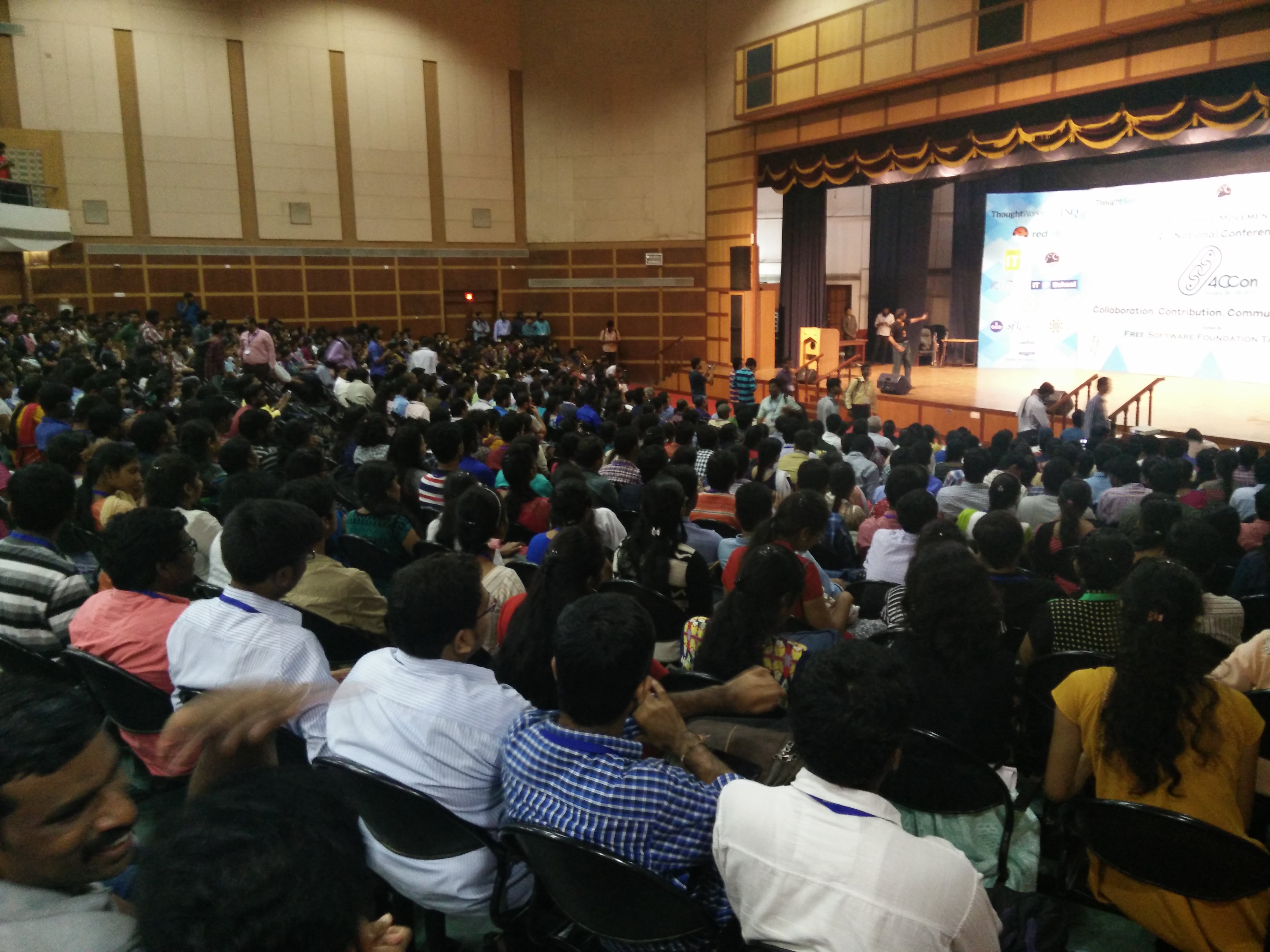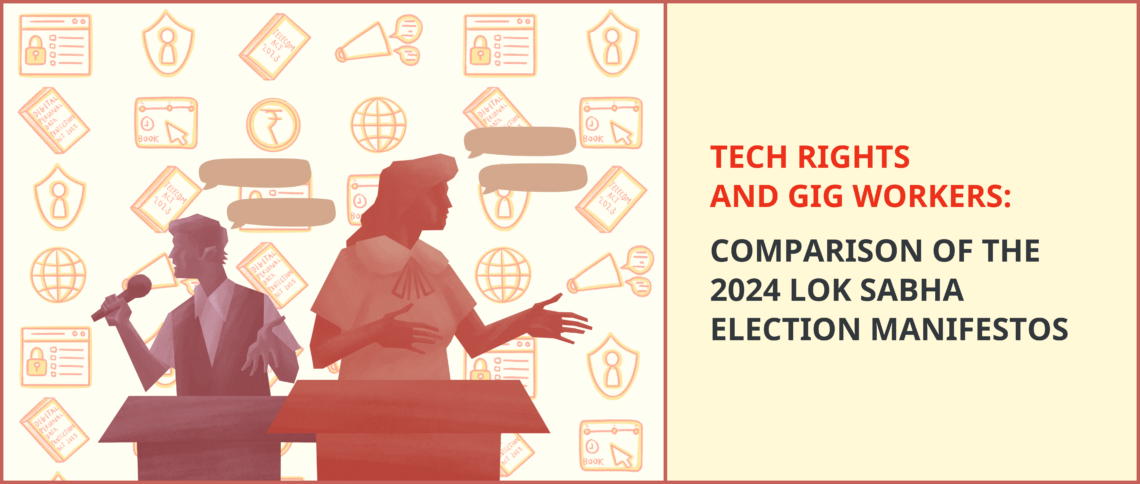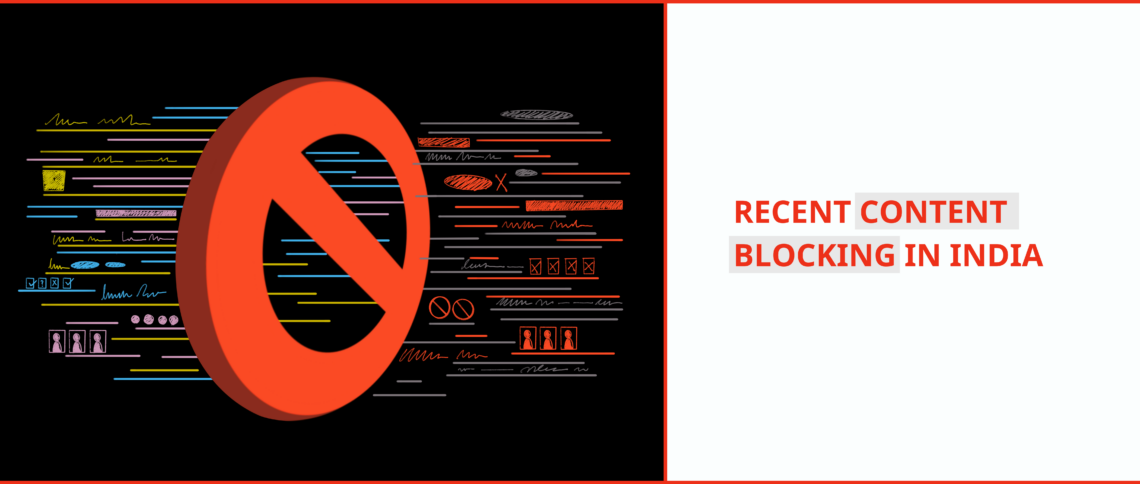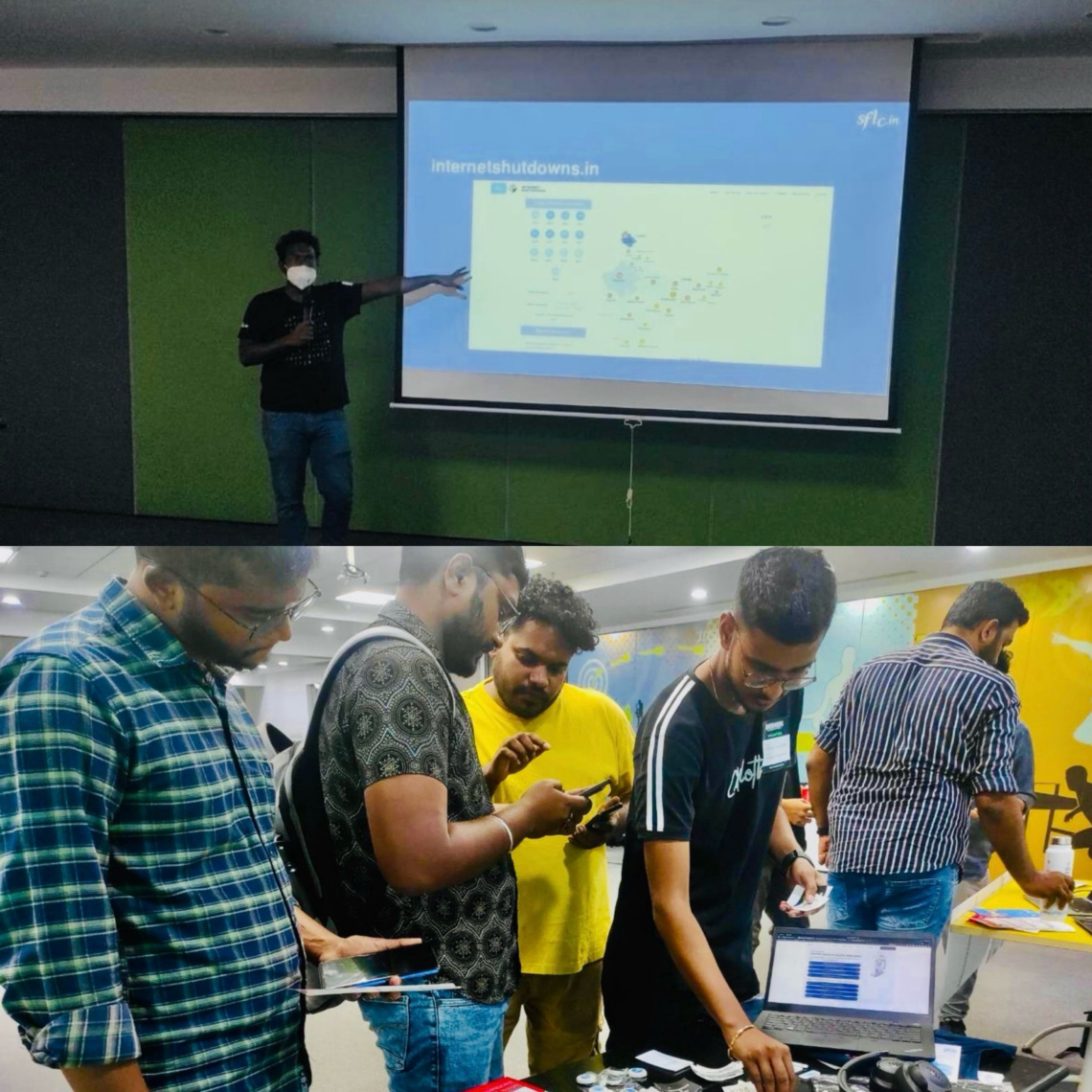4CCon (Collaboration, Contribution, Community and Commons Conference), the second national conference by Free Software Movement of India (FSMI) took place from 26 January 2017 to 28 January 2017. The first day was for pre-conference workshops, and the second and third day were for the actual conference. Free Software Foundation Tamil Nadu (FSFTN), a member organization of FSMI, hosted the conference which was organized in B.S. Abdur Rahman University, Vandalur, Chennai. It served as a place where people interested in issues surrounding Free and Open Source Software (FOSS), Net Neutrality, and other social issues related to technology, could meet, talk, collaborate and foster a sense of contributing to a community that they belong to. SFLC.in was a sponsor of the event which was attended by over 1000 people. Most of the attendees were students. Activists, journalists, developers and people from various other backgrounds also attended the event.
SFLC.in was represented at the event by Prasanth Sugathan, Sarath M.S. and Sukarn Singh Maini. We set up a booth on the second and third day of the event, i.e. the days on which the conference was held. Our booth was visited by over 300 people, and we were able to speak with a variety of people concerned about digital issues. 24 sessions took place during the conference, of which we hosted a session on intellectual property, and participated in a panel on net neutrality during the conference. A Telegram group called ‘SFLC.in Digital Defenders’ was set up during the panel on Net Neutrality and Internet Shutdowns on 28 January 2017. As of 01 February 2017, the Telegram group has 96 members.
SFLC.in’s sessions
Net Neutrality
This session’s opening statements were made by Siddhartha from Swecha. Speakers included Prasanth Sugathan, Sarath M.S. and Sukarn Singh Maini from SFLC.in, and Kiran Jonnalagadda from Internet Freedom Foundation. We spoke about legal and economic sides of the issue of Internet shutdowns. We mentioned the exponential growth of internet shutdowns over time since the first shutdown tracked by SFLC.in in 2013. We provided a comparison of Section 144 of CrPC and Section 69A of the IT Act, legal decisions by Indian Courts and the requirement of an element of incitement to initiate an Internet shutdown. We mentioned that crisis hit zones have a greater need for people to be able to communicate with ease, and that Internet shutdowns are counter-productive as governments and police could use the Internet to spread their own message instead of restricting communication altogether. We gave a demonstration of SFLC.in’s upcoming Internet shutdowns website, including SFLC.in’s shutdown data. Lastly, we invited everyone to join SFLC.in’s Digital Defenders Telegram group to help us in defending digital freedoms.
Intellectual Property
This session was chaired by Prabir Purkayastha (President, FSMI), with Prasanth Sugathan (SFLC.in) and Prof. G.S.Madhusudhanan (IIT Madras) participating as speakers. Prasanth spoke about legislative developments in software patents, including the 2002 amendment, 2004 ordinance, 2005 amendment and the evolution of CRI guidelines. Prasanth also spoke about why it is important to not have software patents. The 2002 amendment of the Patents Act introduced Section 3(k), barring patents from being granted for computer programs per se, among other exclusions. 2004′s ordinance modified Section 3(k) by allowing software patents for technical application to industry and when software is combined with hardware. 2005′s amendment repealed 2004’s ordinance, and by doing this, 2005’s amendment restored Section 3(k) to its original form as it was introduced in the 2002 amendment. For the evolution of CRI guidelines, you can refer to our earlier poston the topic.
We would like to make a special mention of the following sessions:
Women In Technology
With many FOSS organizations focusing on engineering colleges, there is significant participation from women in the numerous workshops, talks and camps held by these groups. However, it has been a challenge in bringing a proportional number of women into leadership roles. The session focused on the challenges faced by women while working in such environments. Most interestingly, this was the only session which saw full participation of the audience in a role-playing game that simulated situations that women face as day-to-day functionaries of FOSS groups and encouraged participants to come up with solutions and workarounds to some of those problems.
Demonetisation and Digital Infrastructure
With the Government of India’s demonetization move, the world of technology has been suddenly pushed into a sea of debates on digital payments and cashless economies, much like the common people pushed into queues before ATMs and banks. Although some of the panelists on this session shied away from commenting on the merits or demerits of demonetization, others were vocal in their criticism of the central government. However, the focus of the discussion was on the social conditions in which the country is being forced to get onto a digital platform with the proponents lauding the fact that we are on our way to achieve what no other nation in the world has, and the opponents pointing out the gaping holes in the strategy that ignores the vast majority of illiterate poor in India for whom access to electricity, toilets and clean drinking water itself is not yet a reality.




